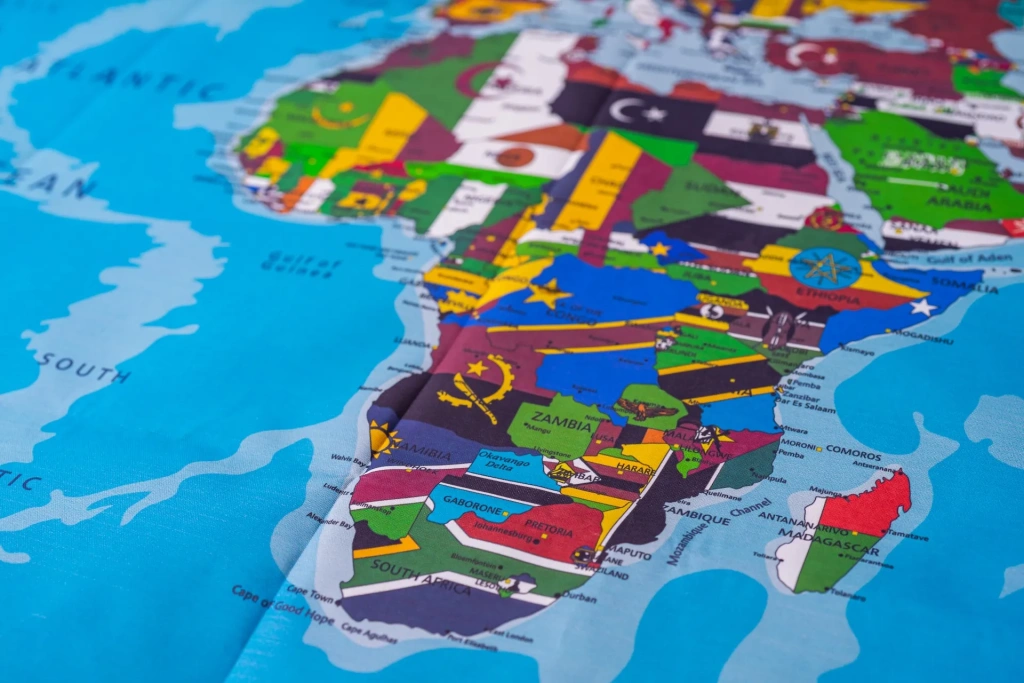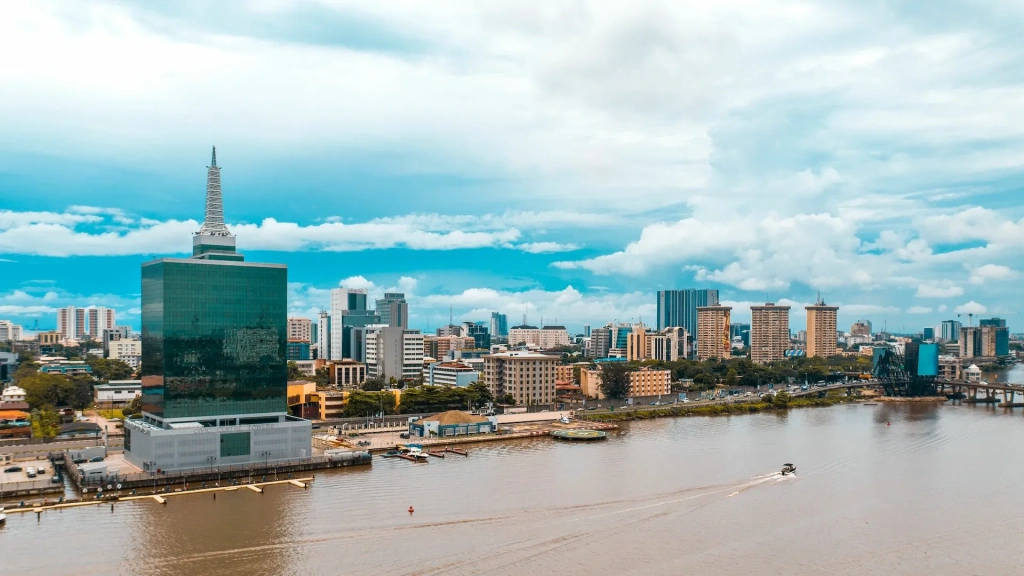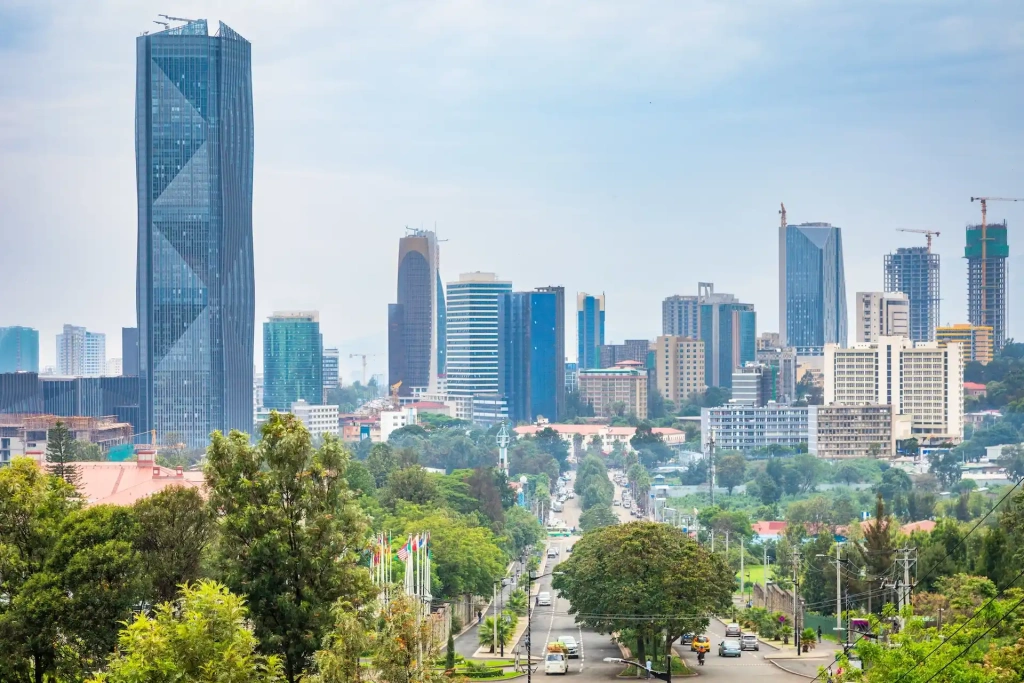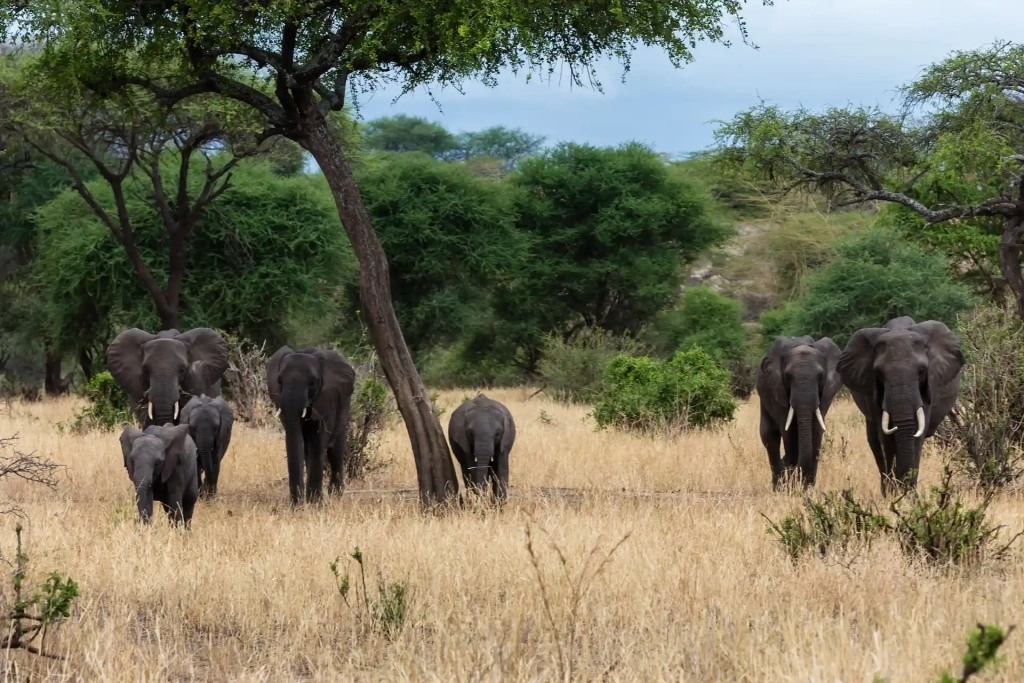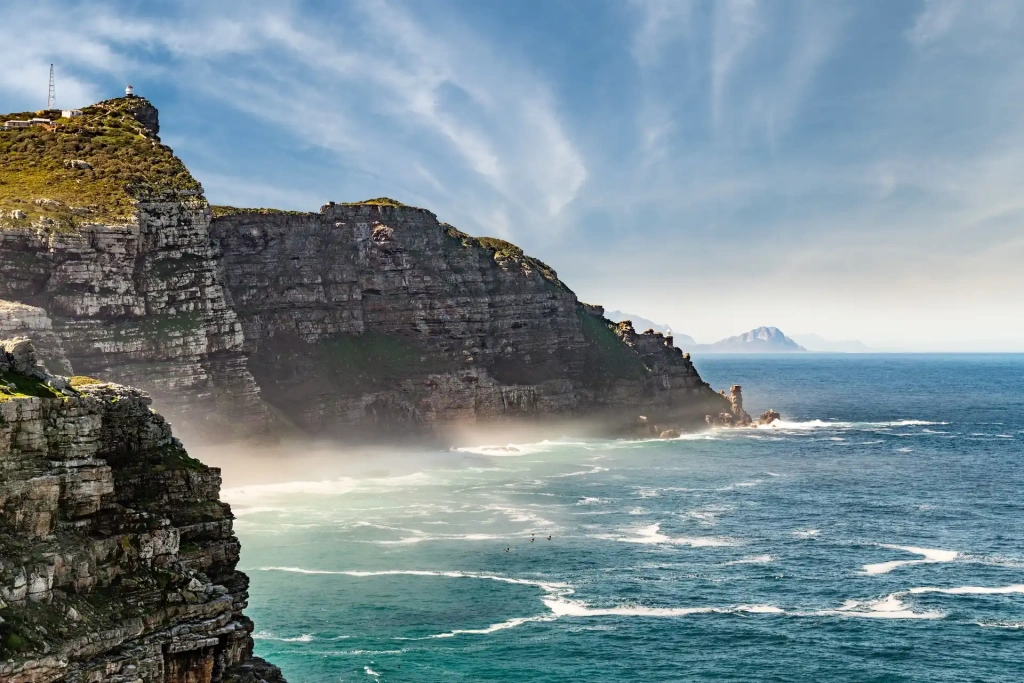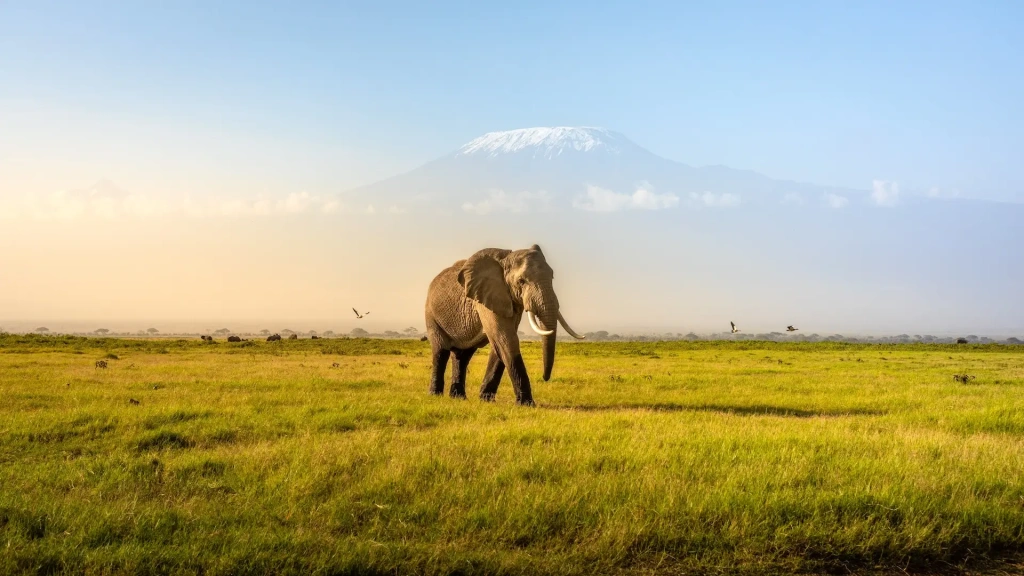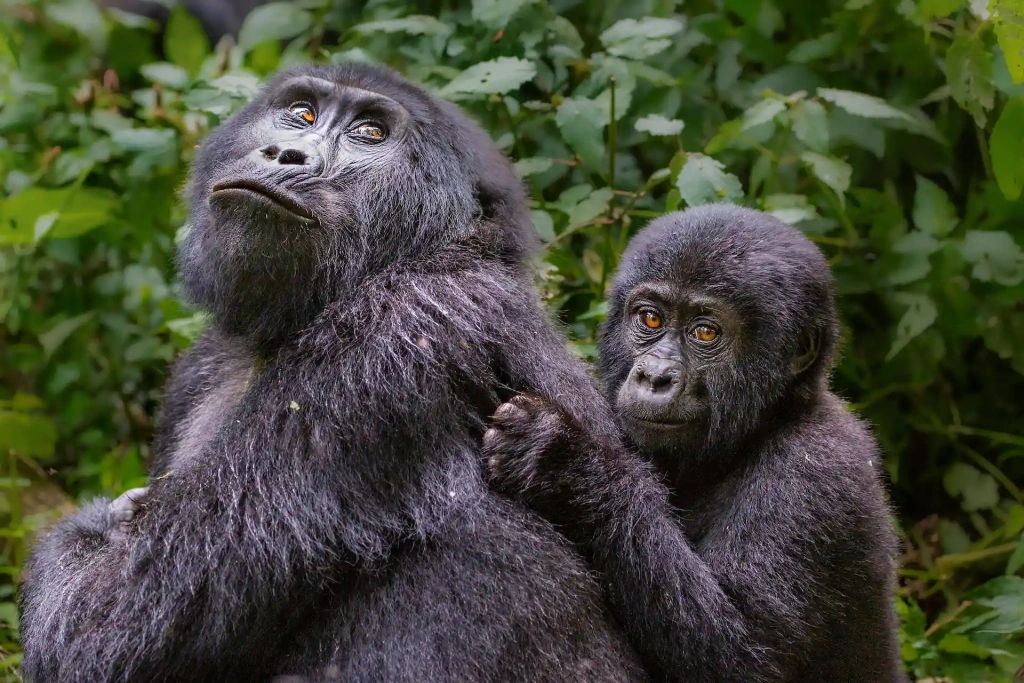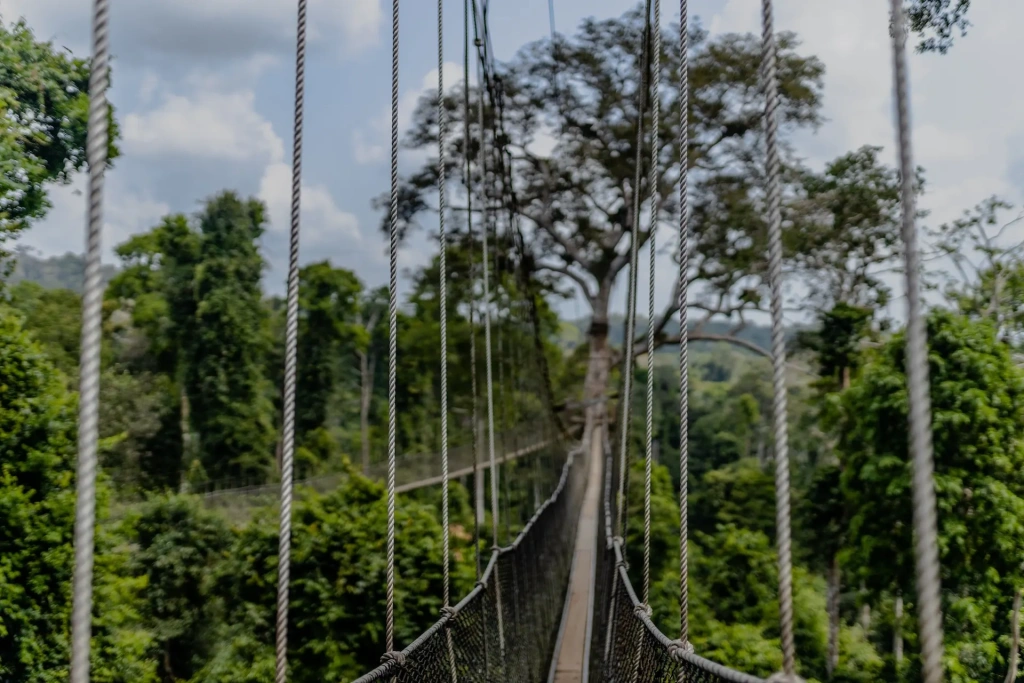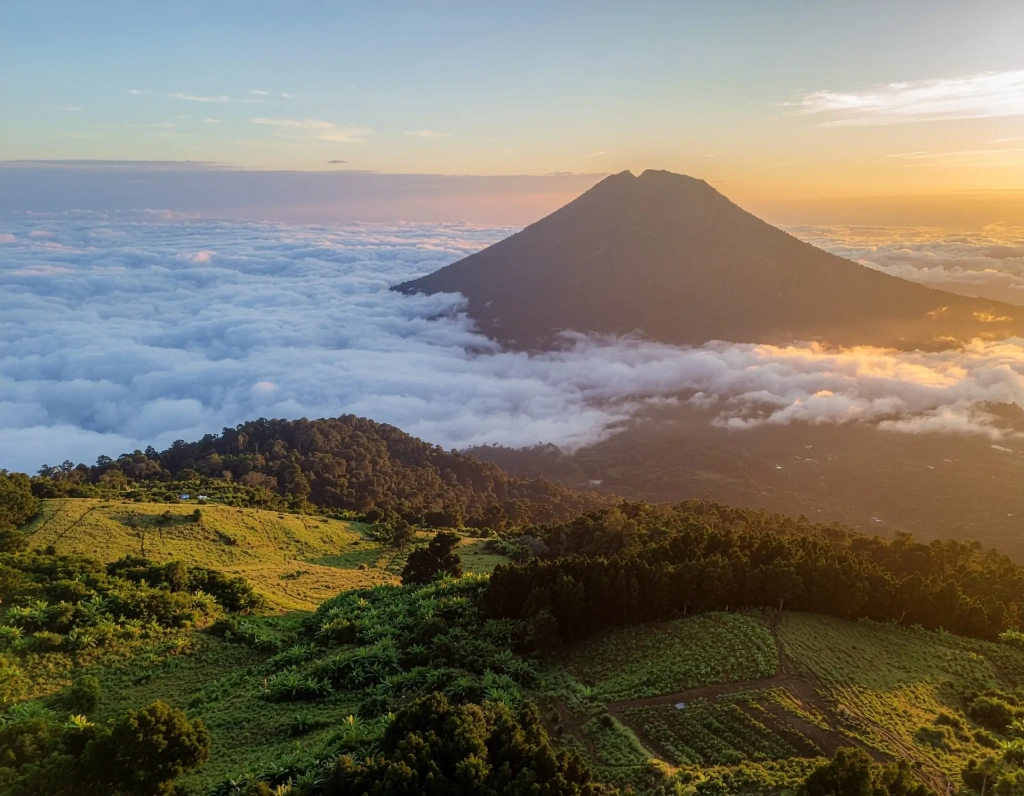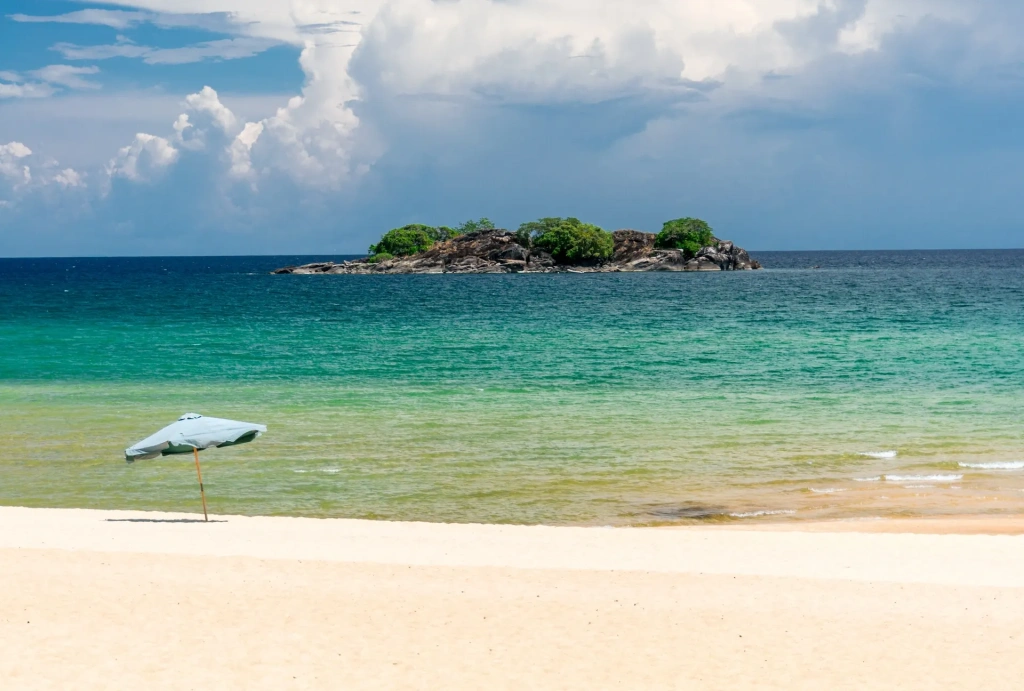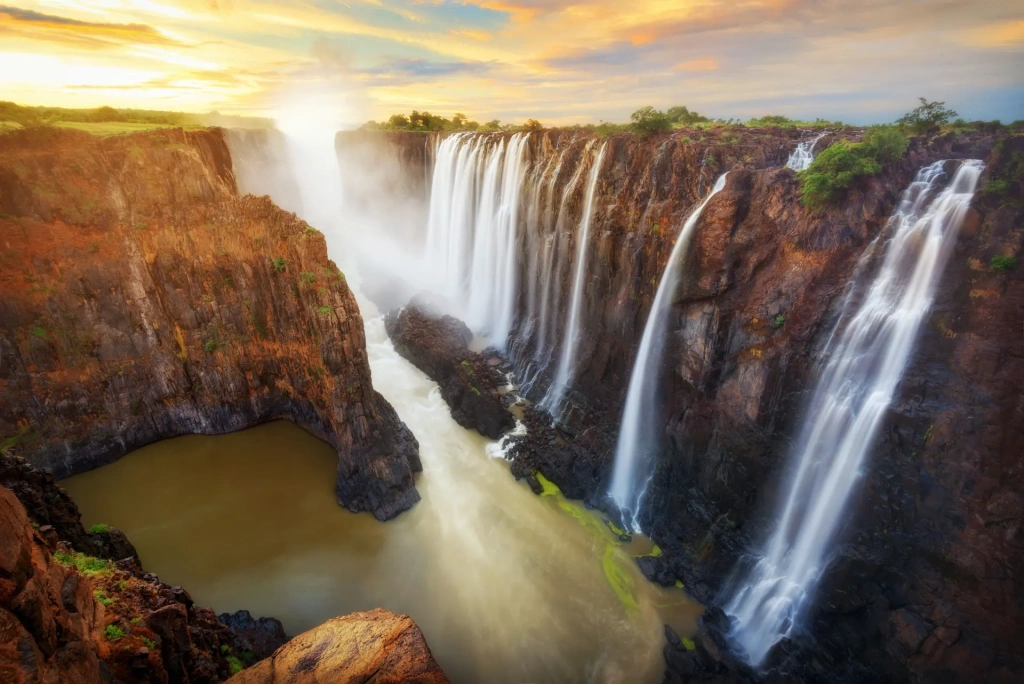English is an official language in more than twenty African nations, with up to 250 million people across the continent speaking it. It is widely used in government institutions, education, business, and daily life. According to the British Council, African countries will account for the largest growth in English-speaking populations in the coming decades.
So, what African countries speak English? Here are the ten largest and most notable English-speaking countries on the continent, along with their main attractions, compiled by Altezza Travel.
Jump to the full list of English-speaking countries in Africa.
Nigeria
- Region: West Africa
- Population: 236.3 million
- Official language: English
- Share of English speakers: ~50%
- Currency: Nigerian naira (₦)
- Safety ranking: 148th
Nigeria is the most populous country in Africa and one of the most well-known African countries that speak English. Here, English is not only official but also the primary language in government, education, business, and media. It connects hundreds of ethnic groups, though local languages such as Hausa, Yoruba, and Igbo are widely spoken in everyday life.
Among the country’s most famous tourist attractions is Gashaka-Gumti National Park — the largest in Nigeria. It is home to more than 100 species of animals, including elephants, chimpanzees, hippos, crocodiles, and the world’s largest antelopes, the elands. Travelers also visit Yankari Reserve, where safaris can be combined with hot spring visits, and Obudu Resort in Cross River State in the southeast, known for its tranquil atmosphere and mountain views.
Nigeria is one of the most dangerous countries in Africa, and many governments advise against visiting it. Experienced travelers are advised to visit the central and southern regions, including Lagos and coastal tourist areas. These zones are considered relatively safe when basic precautions are observed.
Ethiopia
- Region: East Africa
- Population: 130.8 million
- Official language: Amharic (English has working status in education and business)
- Share of English speakers: ~0.1%
- Currency: Ethiopian birr (ETB)
- Safety ranking: 138th place
Ethiopia is the only African country that was never colonized. The low proportion of English speakers is because only about 22.5% of the population lives in cities. Most people live in rural areas and use local languages such as Amharic, Oromo, and Tigrinya. English, however, is widely used in universities, science, international business, and tourism, so you’ll have no trouble communicating in the capital and resort areas.
Key attractions include Lalibela — a group of rock-hewn churches from the 12th–13th centuries, often called the “New Jerusalem of Africa.” The Simien Mountains National Park is a favorite among hikers and photographers for its deep canyons, peaks rising above 4,500 meters (14,760 feet), and endemic animals like the gelada baboon and Ethiopian wolf. In Axum, an ancient city in the north, visitors can see obelisks, palace ruins, and churches. Travelers also often visit Lake Tana, with its island monasteries, and the Blue Nile Falls, just 30 kilometers (18.6 miles) away.
Since 2020, northern Ethiopia has experienced civil conflict. Although a peace agreement was signed in 2022, instability remains, and travel to northern regions is not recommended. The capital, Addis Ababa, and key tourist areas in the south and center remain open to visitors, but always check the latest situation before traveling.
Tanzania
- Region: East Africa
- Population: 70.2 million
- Official languages: Swahili and English
- Share of English speakers: ~10%
- Currency: Tanzanian shilling (TZS)
- Safety ranking: 73rd place
Tanzania is one of the most attractive African countries for travelers. While most locals communicate in Swahili, English has official status and is used in government, education, business, and tourism. Guides and staff at major tour operators speak it fluently.
The main reasons to visit Tanzania are its natural beauty and historical heritage. In Serengeti National Park, you can witness the Great Migration, while the Ngorongoro Crater boasts the highest concentration of animals in Africa. Tarangire is known for its massive elephant herds and century-old baobabs — symbols of the park. Adventure lovers can climb Mount Kilimanjaro, the tallest mountain in Africa (5,895 meters / 19,341 feet). You don’t need climbing experience or mountaineering gear — just good physical fitness. Many visitors end their trip in Zanzibar, where they can stroll the narrow streets of historic Stone Town and relax on Indian Ocean beaches.
Tanzania ranks among the safest countries in Africa. In the Global Peace Index, it holds the 73rd position, ahead of France, Thailand, China, and the United States.
South Africa (RSA)
- Region: Southern Africa
- Population: 62.6 million
- Official languages: 11, including English, Afrikaans, Zulu, and Xhosa
- Share of English speakers: ~31%
- Currency: South African rand (ZAR)
- Safety ranking: 130th place
South Africa is one of the most developed countries on the continent. It has more than ten official languages, but English plays the leading role in business and government.
In South Africa, you should visit Cape Town with its famous Table Mountain, nearby wine valleys, and the picturesque Cape of Good Hope. Kruger National Park is also a must-see — one of the largest reserves in Africa, home to the Big Five: lion, elephant, buffalo, rhino, and leopard. Another highlight is the Garden Route along the Indian Ocean coast, known for its scenic landscapes and the chance to spot whales, dolphins, and many rare bird species.
In terms of safety, South Africa ranks low globally due to high crime rates, especially in major cities such as Johannesburg, Cape Town, Pretoria, and Durban. However, tourist areas and nature reserves are generally safe during daylight hours.
Kenya
- Region: East Africa
- Population: 61.6 million
- Official languages: English and Swahili
- Share of English speakers: ~18%
- Currency: Kenyan shilling (KES)
- Safety ranking: 127th place
For most Kenyans, one of the local languages is their mother tongue: Swahili, Kikuyu, Luo, Kamba, or others. But a significant share of the population speaks English to varying degrees. English is especially common in major cities such as Nairobi and Mombasa, as well as in the tourism sector nationwide. So, you won’t need to worry about not being understood when traveling here.
Kenya is best known for the Maasai Mara Reserve, where from July to September you can witness the Great Migration, and Amboseli National Park. Although Africa’s tallest mountain, Kilimanjaro, lies in neighboring Tanzania, the best panoramic views of the volcano open up from the Amboseli plains. Kenya also offers mountain trekking — you can climb Mount Kenya, after which the country itself was named. Another must-see destination is the Indian Ocean coast with the city of Mombasa. Here you’ll find preserved colonial architecture, the ancient Fort Jesus (a UNESCO World Heritage Site), and picturesque beaches.
From a safety perspective, Kenya is considered a country with moderate risks. The main issues are petty crimes in cities. Major tourist destinations, including safari parks and the coast, remain fairly safe.
Uganda
- Region: East Africa
- Population: 54 million
- Official languages: English and Swahili
- Share of English speakers: ~29%
- Currency: Ugandan shilling (UGX)
- Safety ranking: 113th place
Uganda is one of the most English-speaking countries in Africa. Swahili also has official status, but it is less widely used than in neighboring Tanzania and Kenya.
The main attraction for visitors is Bwindi National Park, home to more than half of the world’s mountain gorilla population. Lake Victoria, the largest on the continent, attracts travelers with its scenic islands and rich biodiversity. Hundreds of fish species live in the lake, while the surrounding area is home to many birds and mammals, including pelicans, pink flamingos, storks, hippos, Nile crocodiles, giraffes, and elephants. In Murchison Falls National Park, in the northwest, you can watch the Nile River surge through a narrow gorge, creating a powerful waterfall.
Uganda is considered relatively calm and safe compared to its neighbors. Minor crimes may occur in large cities, especially Kampala, but tourist areas are generally safe.
Ghana
- Region: West Africa
- Population: 35.2 million
- Official language: English
- Share of English speakers: ~23%
- Currency: Ghanaian cedi (GHS)
- Safety ranking: 61st place
Ghana is one of the most stable and democratic countries in West Africa. English plays a key role in education, business, and tourism. The average level of English proficiency among locals is among the highest on the continent.
Travelers can explore several key attractions here. Cape Coast Castle, once a major hub of the transatlantic slave trade, now serves as a memorial and museum. Kakum National Park offers a canopy walkway up to 40 meters (131 feet) above the forest floor, where you can spot leopards, forest elephants, and over 250 species of birds. In the capital city, Accra, modern skyscrapers stand beside bustling markets and Atlantic beaches.
The country is known for its hospitality and political stability. Unlike many others on the continent, such as the Democratic Republic of the Congo, Ghana faces no internal conflicts or political unrest.
Cameroon
- Region: Central Africa
- Population: 30.2 million
- Official languages: French and English
- Share of English speakers: ~10%
- Currency: Central African CFA franc (XAF)
- Safety ranking: 137th place
In the 20th century, Cameroon was divided between France, which controlled the eastern part, and Britain, which governed the west. Today, English is an official language in two of the country’s ten regions, while French dominates in government, education, and media, as the majority of the population is Francophone.
Among Cameroon’s top attractions is Mount Cameroon — an active volcano and the highest peak in West and Central Africa, at 4,040 meters (13,255 feet). The ascent takes up to three days, depending on the route. In the north, Waza National Park is the largest in the country, home to elephants, giraffes, antelopes, and rare birds. The Ekon-Nkam Waterfalls, about 80 meters (262 feet) high, became one of Cameroon’s best-known natural landmarks after appearing in the film Tarzan.
Today, Cameroon cannot be considered completely safe for travel. Areas bordering Nigeria, the Central African Republic, and Chad experience high crime levels and should be avoided. The southern and western regions are much safer and open to tourists.
Malawi
- Region: East Africa
- Population: 22.4 million
- Official languages: English and Chinyanja (Chichewa)
- Share of English speakers: ~4%
- Currency: Malawian kwacha (MWK)
- Safety ranking: 71st place
English is Malawi’s official language, but most locals speak Chichewa and other indigenous languages. For tourists, however, this is not an issue since English is widely spoken in cities and resort areas.
Lake Malawi is one of the largest and deepest in the world, reaching depths of up to 706 meters (2,316 feet). It’s a UNESCO World Heritage Site and the center of the country’s beach and ecotourism. Liwonde National Park offers sightings of elephants, rhinos, hippos, and crocodiles, while the Zomba Plateau attracts visitors with its cool mountain climate, waterfalls, and scenic vistas.
Malawi is known for its low crime rate. The main risks for tourists are pickpocketing in large cities and the chaotic traffic conditions that can lead to road accidents.
Zambia
- Region: Southern Africa
- Population: 21.5 million
- Official language: English
- Share of English speakers: ~4%
- Currency: Zambian kwacha (ZMW)
- Safety ranking: 64th place
English is Zambia’s official language, a legacy of its British colonial past. Many people in cities and tourist areas speak it fluently, although most Zambians use local languages such as Bemba, Nyanja, Tonga, and Lozi in daily life.
The country’s main attraction is Victoria Falls, about 1,800 meters (5,905 feet) wide and 120 meters (394 feet) high — one of the Seven Natural Wonders of the World. Nature lovers will enjoy South Luangwa National Park, where guided walking safaris allow visitors to observe elephants, giraffes, buffalo, leopards, and rare birds. Another highlight is Kafue National Park, the largest in the country, which includes diverse ecosystems ranging from savannas to wetlands and is known for predator sightings and the rare sitatunga antelope.
Zambia is considered one of the most peaceful and safe countries in Africa. Petty theft can occur in major cities like Lusaka or Livingstone, but there are no serious risks for tourists.
FAQ
How many English-speaking countries are there in Africa?
More than 20 African countries can be considered English-speaking in a broad sense — in some, English is the official language, while in others, it is widely used in education, tourism, and business.
How many people in Africa speak English?
Between 200 and 250 million people across the continent speak English as their first or second language.
In which African countries is English spoken best?
There’s no definitive answer, as this is hard to measure. Among the most tourist-friendly English-speaking countries are Tanzania, Kenya, South Africa, Uganda, and Ghana.
What is the largest English-speaking country in Africa?
The most populous English-speaking country in Africa is Nigeria, with more than 236 million residents.
What are the safest countries in Africa?
The safest countries in Africa include Mauritius, Ghana, Zambia, Namibia, Morocco, Tunisia, Egypt, and Tanzania.
20 largest English-speaking countries in Africa
All content on Altezza Travel is created with expert insights and thorough research, in line with our Editorial Policy.
Want to know more about Tanzania adventures?
Get in touch with our team! We've explored all the top destinations across Tanzania. Our Kilimanjaro-based adventure consultants are ready to share tips and help you plan your unforgettable journey.















